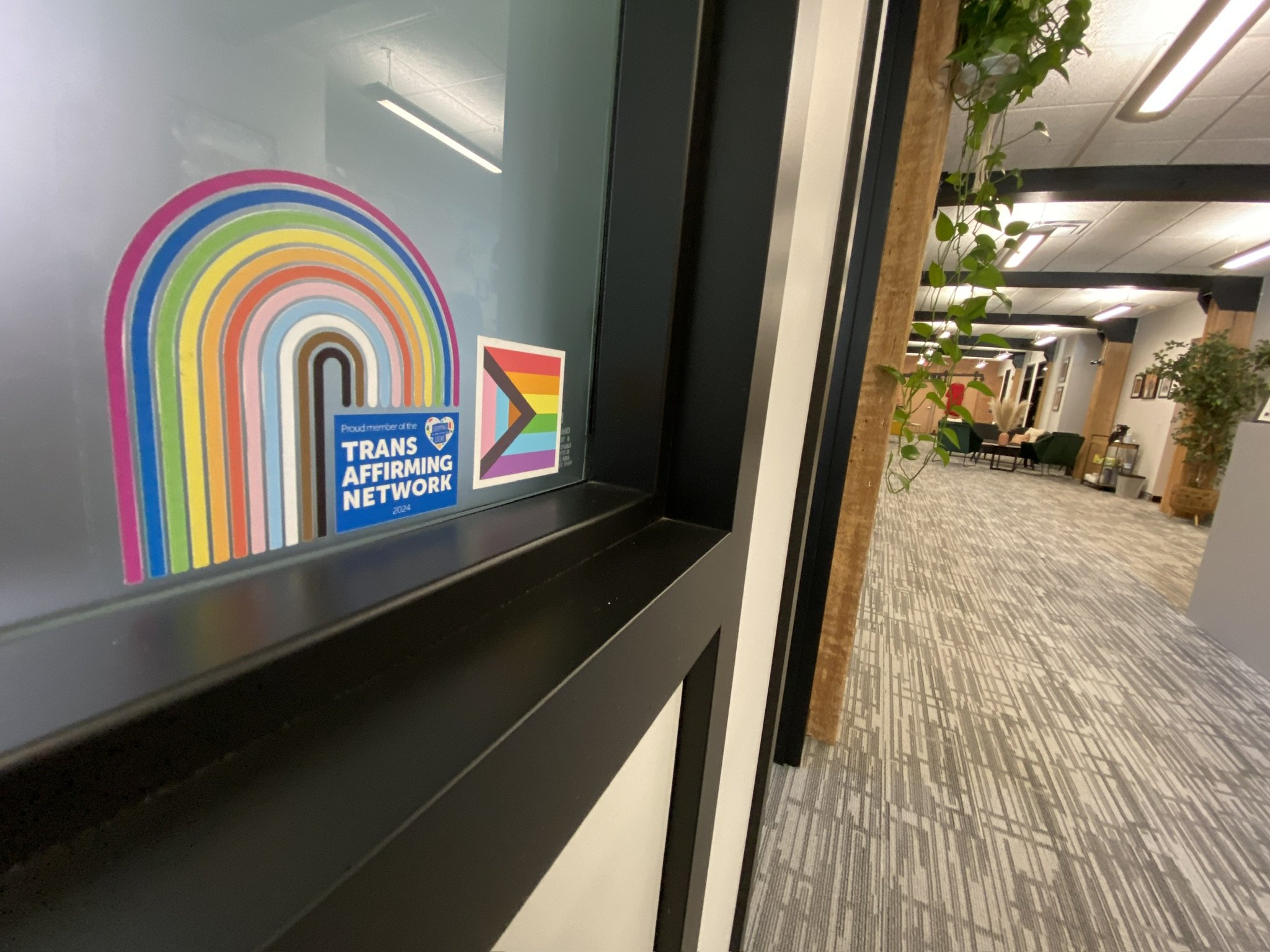individual counselling / therapy
sessions are 60 minutes long, $200 per hour (sliding scale available).
payments can be made by e-transfer or credit card.
if you have health benefits, The cost should be covered in accordance with your plan.
direct billing not available at this time.
Ages 14 and up.
The simplest way to describe my style is that I’m a "right brain” therapist.
This means that I engage the right hemisphere of the brain, which is typically associated with implicit memory, self-awareness, emotional processing, meaning making, and non-verbal communication. This might look like going deeper into emotional experience, memories, meaning, and physiological experience.
Central to my approach is Relational Cultural Theory (RCT) and Attachment Theory. Both emphasize the fundamental need for connection and the importance of healthy, responsive relationships for psychological well-being. Whether it’s the attachment bond in childhood or relational dynamics in adulthood, I believe the capacity to connect with others is central to emotional growth and mental health. Importantly, RCT incorporates the role of power dynamics, societal oppression, and inequality in shaping relationships.
My approach is also highly influenced by Humanistic Therapy, which emphasizes the inherent potential for positive change in individuals. Humanistic therapists act as a supportive guide, and the goal is to help you understand yourself better, develop a stronger sense of self-worth, and achieve greater self-actualization.
so, what does this look like in counselling?
Guided by Relational Cultural and Humanistic theories, I’m what’s called an “integrative” therapist. This means that I use several different types of therapy (listed here) with a given individual.
You and I will create an individualized plan to meet your counselling goals. Why? Because I firmly believe that one size does not (and cannot) fit all.
-
Emotion-Focused Therapy (EFT) is a type of therapy that emphasizes the role of emotions in shaping human experiences and behaviours. it focuses on helping individuals identify, experience, and process emotions to foster emotional regulation and self-awareness. EFT also aims to repair relationship patterns and resolve unresolved emotional issues, particularly in the context of trauma or distress.
-
Internal Family Systems (IFS) is a type of therapy that views the mind as made up of multiple "parts". IFS identifies three primary types of parts: Exiles (wounded or vulnerable parts), Managers (protective parts that manage day-to-day life), and Firefighters (parts that respond to emotional distress with impulsive behaviors). The goal of IFS is to help individuals develop a harmonious internal system by fostering self-awareness, healing trauma, and encouraging cooperation between parts. The "Self," a compassionate, centered state, leads the process.
-
Narrative therapy emphasizes the idea that people’s identities are shaped by the narratives they construct about their lives. This type of therapy helps clients rewrite their personal stories, focusing on empowering them to change limiting beliefs and patterns. Narrative Therapy separates the person from their problems, encouraging clients to see challenges as external, rather than internalizing them. By exploring alternative narratives, clients can uncover new possibilities, strengthen resilience, and reclaim agency over their lives and experiences.
-
Somatic therapy is a body-centered approach to healing that focuses on the connection between the mind and body. It recognizes that trauma, stress, and emotional experiences are often stored in the body, influencing physical sensations, posture, and behavior. The goal is to help clients become more aware of bodily sensations and release stored tension or trauma. By integrating the body’s wisdom with emotional and psychological healing, somatic therapy aims to restore balance, improve self-regulation, and promote overall well-being.
-
Solution-Focused Therapy (SFT) focuses on finding solutions to current problems by emphasizing the client’s strengths, resources, and abilities to create positive change. The therapist helps clients clarify their goals, identify exceptions to their problems, and explore possible solutions.
These are the areas I have experience and/or specialized training. If you don’t see yourself reflected here, that’s OK. It doesn’t mean I won’t be able to work with you. Let’s set up a free intro session to see if we’re a good fit.
loneliness
shame
persistent anger
Trauma
Anxiety
depression
Post-partum
Grief
stress
Relationship challenges
Self-esteem
Perfectionism and people pleasing
Climate and political anxiety
Challenges related to colonialism and systemic oppression such as transphobia, racism, xenophobia, anti-fat bias, ableism, etc.




